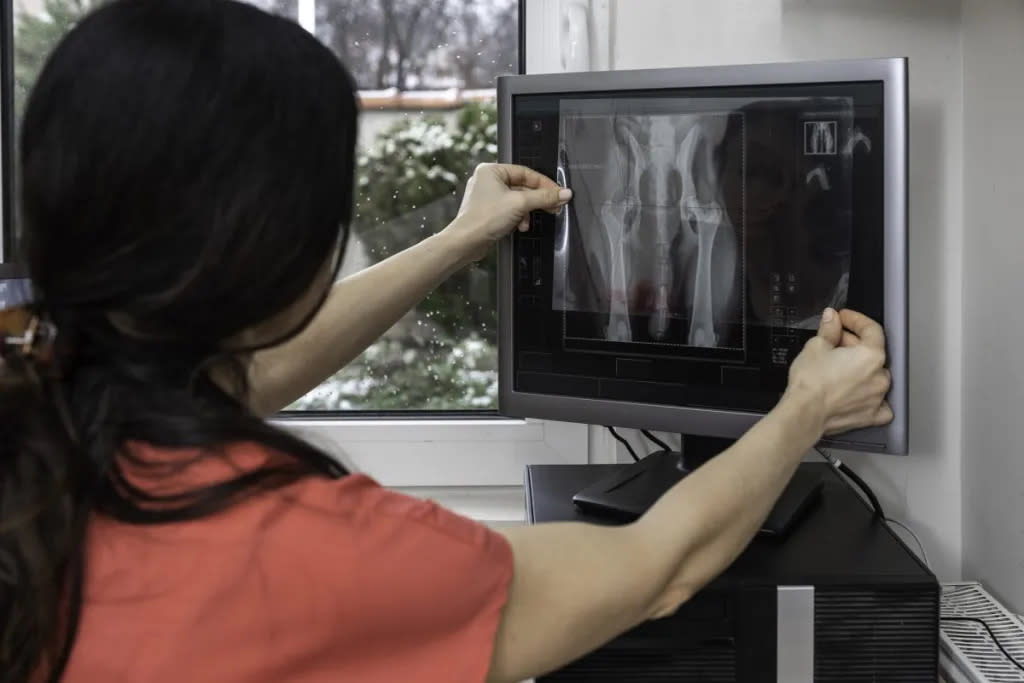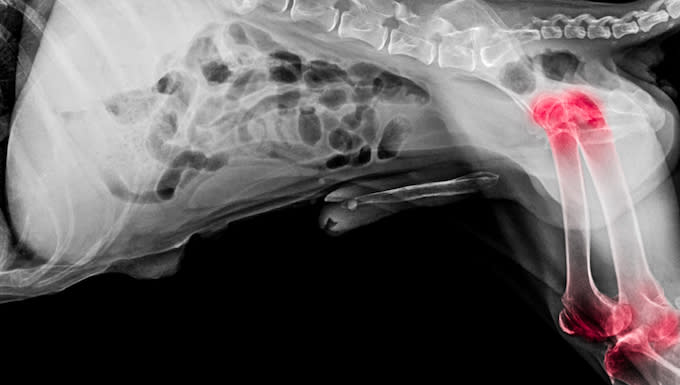Researchers Confirm Genetic Links To Canine Hip Dysplasia


A 2021 study found 21 specific genetic markers associated with canine hip dysplasia (CHD). More than two years later, this remains the most significant study examining the connection between a dog’s genetics and this condition.
Initially published in BMC Genomics in January 2021, the project took place at the University of Helsinki, Finland. In this particular study, researchers investigated and validated DNA samples from 1,600 dogs across 10 different breeds. Interestingly, the study strived to validate and reassess findings from previous research.
Additionally, the study worked with the Finnish Kennel Club to obtain standardized phenotypes for dog hip dysplasia. Importantly, these phenotypes were professionally assessed by veterinarians. Furthermore, the phenotypes give scientists a comprehensive DNA database for reference.
Finding important genetic links to canine hip dysplasia
According to Professor Antti Iivanainen, one of the study’s authors, “the opportunity to utilize the world’s largest canine DNA bank” was vital to their success. With this valuable data, the professor says they confirmed the disease association of 21 loci in 14 chromosomes. Interestingly, loci are the names for specific gene locations within certain chromosomes.
Of all the loci researchers confirmed, “20 of these [were] associated with CHD in specific breeds, whereas one locus is unique to the across-breed study,” said the study. Fascinatingly, researchers found a strong correlation with genes involved in neddylation, a protein modification process. Previously, research has shown links between neddylation and Alzheimer’s disease. According to the study, “Neddylation contributes to many cellular functions including inflammation.” Ostensibly, changes in protein structure could play a central role in CHD development in certain breeds.
Why this study matters
One doctoral student, Lea Mikkola, Ph.D., wrote their thesis on the topic. According to Mikkola, “A multitude of genes affect the development of the disease.” Therefore, while the study confirms a genetic component to CHD, the results are not directly applicable to dog breeders.
However, future risk profiles will benefit from the loci confirmations. Additionally, the study also found certain “candidate genes” associated with human hip dysplasia. As such, future studies can use this information to improve human healthcare.
Most importantly, the study cites an important need for more research “through increased international collaboration, [and] with different dog breeds,” says Professor Hannes Lohi, another author.
Dog breeds prone to hip dysplasia
A number of dog breeds struggle with this condition. Amongst them, are many popular breeds, including: Rottweilers, Doberman Pinschers, Golden Retrievers, Labradoodles, and American Pit Bull Terriers. Larger breeds, including Great Danes and Mastiffs, are also at risk. While that is true, so is the likelihood of rescuing or adopting a smaller dog with the same issue. To illustrate, Schnoodles, Bichon Frise, Rat Terriers, Affenpinschers, and Cavapoos are also prone to elbow and hip dysplasia.
Reading more about hip dysplasia in dogs — including causes, symptoms, and how to treat the condition — can help your pooch. On a related note, it may be helpful to study up on osteoarthritis and learn how to manage related arthritic conditions as well.
The post Researchers Confirm Genetic Links To Canine Hip Dysplasia appeared first on DogTime.

